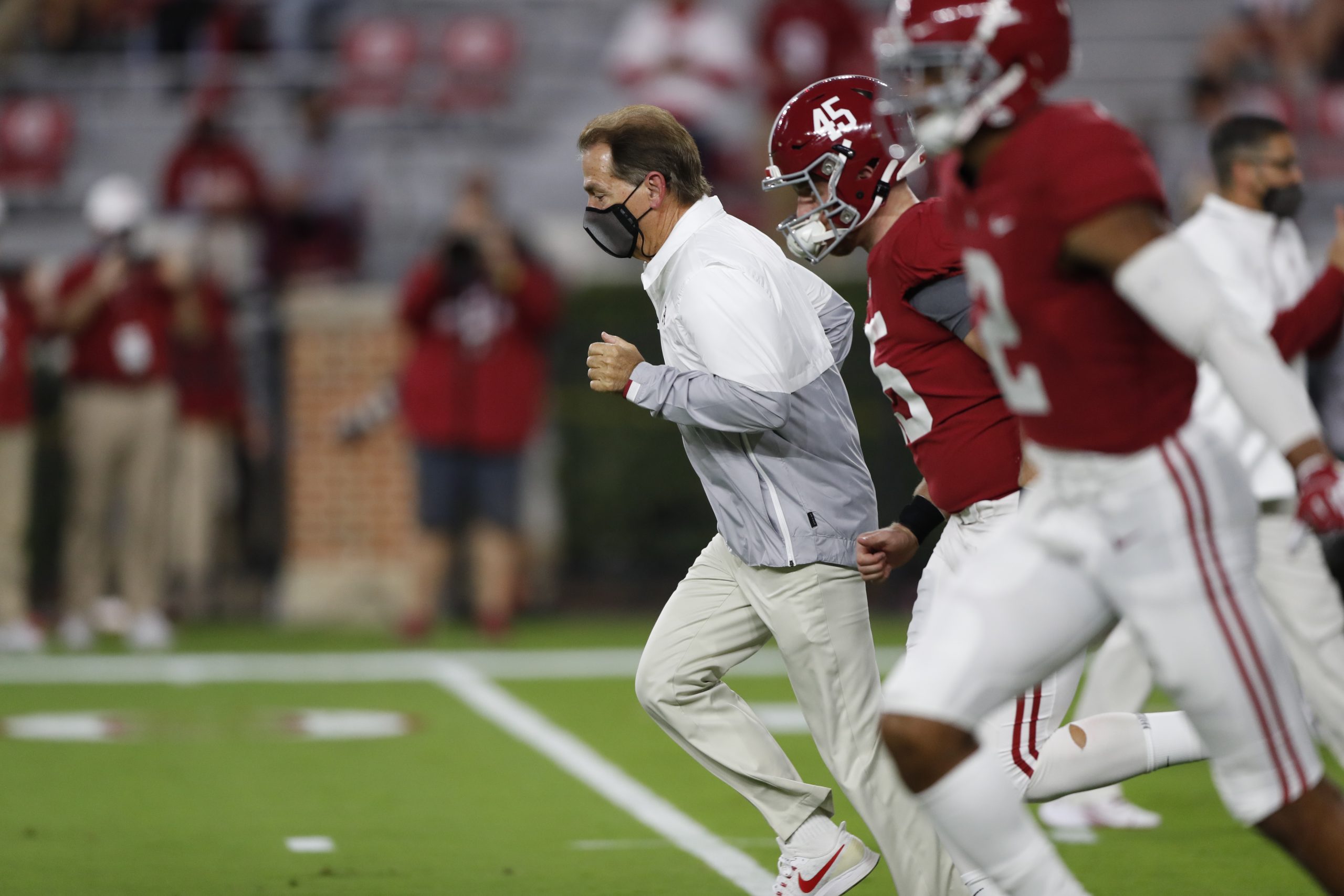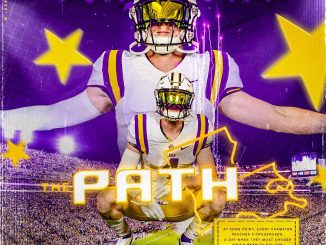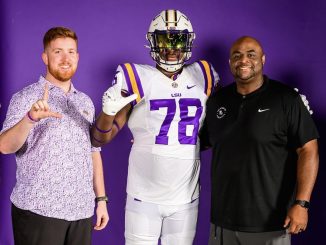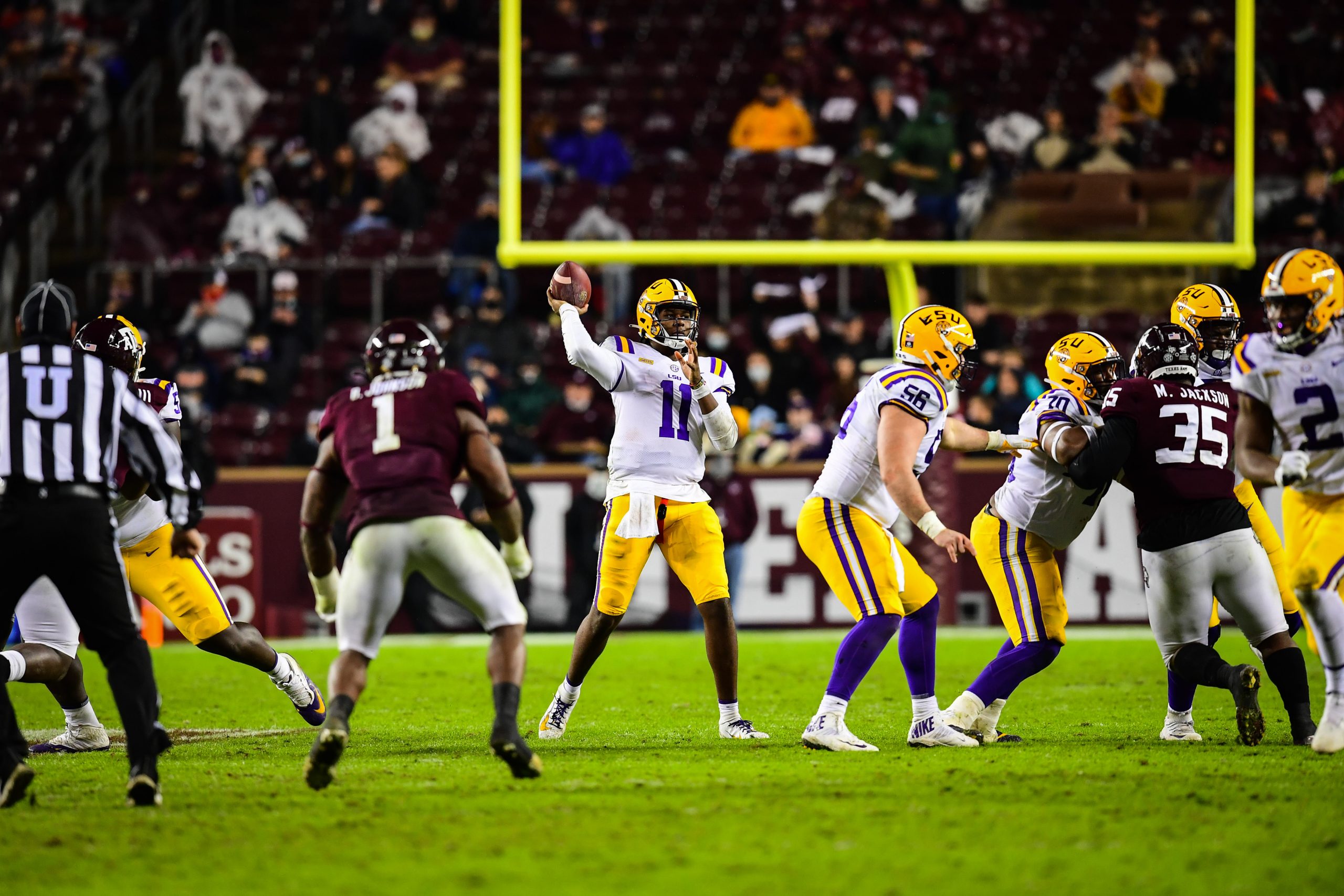
In a span of one cataclysmic week in January, a trio of giants bolted a profession they dominated for decades, leaving the football orbit both lamenting and loving passages in rapid succession of coaching legends Nick Saban, Pete Carroll and Bill Belichick. Their success elicited equal portions of reverence and revulsion.
The Korean War was the major global story of the time when the men were born seven months apart in the final days of Harry Truman as president. Carroll was born in San Francisco on Sept. 15, 1951; Saban arrived in Fairmont, West Virginia on Halloween of 1951 and Belichick in Nashville on April 16, 1952.
Like many elite coaches, the genius of Saban, Carroll and Belichick was hatched at universities not known for football supremacy. Kent State produced Saban; the University of the Pacific is where Carroll played; Belichick attended academic powerhouse Wesleyan.
Saban’s connection to LSU is well known, but Carroll and Belichick have their Tiger associations as well. Saban was head coach of LSU from 2000-04 and directed the Bengals to their first national football title in 45 years in 2003, although the championship was shared with USC, coached by none other than Pete Carroll.
Saban won games as head coach with three different teams in Tiger Stadium. He was 30-5 at Death Valley as LSU coach, was 6-2 in Baton Rouge as Alabama coach and 1-0 with the Miami Dolphins, who beat the New Orleans Saints 21-6 at Tiger Stadium on Oct. 30, 2005, the year the Saints were diverted from the Superdome in the aftermath of Hurricane Katrina.
Saban departs the sideline at 72 with seven national championships and is regarded as the greatest coach in the history of the college game. When he arrived in Baton Rouge at 48, he was a journeyman who had gone 34-24-1 in five seasons at Michigan State and 23-16-1 in Big Ten competition. Saban opened the 21st Century by jogging between the goal posts in the north end zone and never looked back. The 5’6 juggernaut almost immediately became the master of the football universe.
Plaudits go to Joe Dean, who hired Saban, and saw the program rapidly rise from the ashes of eight losing campaigns in eleven seasons and evolve into the Golden Age of LSU Football from 2000-2019.
Pete Carroll won both NCAA and Super Bowl titles at USC and with the Seattle Seahawks. His career did not include a head coaching assignment until 1994 with the New York Jets when he was 42 years old. The previous 21 seasons, Carroll had served as an assistant at Pacific, Arkansas, Iowa State, Ohio State, North Carolina State in college and with the Buffalo Bills, Minnesota Vikings and New York Jets of the NFL.
As a free safety at Pacific in 1972, he was an All-Pacific Coast Athletic Association choice for a second straight year. Pacific went 8-3 in Carroll’s senior season, losing only to Washington (13-6), San Diego State (20-7) and LSU (31-13). Carroll was on the floor of Death Valley defending against Heisman Trophy candidate Bert Jones on Sept. 16, 1972. Jones completed nine of 17 passes for 164 yards and two touchdowns. LSU was stymied on the ground with 91 yards on 48 rushes as Carroll posted eight tackles and three assists.
Carroll’s top assistant at USC was Ed Orgeron. And it was Pete who urged LSU AD Joe Alleva to hire Coach O in 2016. They had collaborated with the Trojans to keep Saban and the Tigers from finishing first in the Associated Press balloting for the 2003 season.
Belichick also has a link to Bert Jones. After logging his collegiate years at Wesleyan as a center and tight end, he took his economics degree from the exclusive school to the NFL where he landed a post as a $25-per-week assistant to Baltimore Colts’ Coach Ted Marchibroda. Belichick was directed by Marchibroda to view film with quarterback Bert Jones and take notes with the soon to be NFL MVP.
The Colts improved from 2-12 in 1974 to 10-4 and won the AFC East over Don Shula’s Miami Dolphins in 1975. For Belichick, the union with Bert was the start of a career that produced six Super Bowl championships. To this day, Belichick lists Jones as the most talented quarterback he has seen.
Christian McCaffrey and Jim Taylor
Christian McCaffrey of the San Francisco 49ers is the first Caucasian to win the NFL rushing title since LSUs Jim Taylor led the pack in 1962 with the Green Bay Packers.
McCaffery gained 1,459 yards with 14 touchdowns on the ground, averaging 5.4 yards per carry in a 17-game season. Taylor rushed for 1,474 yards and 19 touchdowns in ’62, averaging 5.4 yards per carry in a 14-game schedule.
Taylor’s MVP year was the only time in nine NFL seasons that Jim Brown of Cleveland did not lead the league in rushing yards. Sixty-one years have passed since a White NFL back has topped the league in this category.
Taylor was a protégé to the fitness guru Alvin Roy, who operated a health studio on Oklahoma St. in Baton Rouge. There, the imposing physiques of Billy Cannon and Bob Pettit were also crafted. McCaffery is the son of Ed McCaffrey who played 13 years as a receiver in the NFL and is the grandson of Dave Sime, who won a silver medal in the 1960 Olympics in Rome and was named the greatest athlete at Duke University in the 20th Century.
Woodward Compensation Detailed
LSU Associate Athletic Director Verge Ausberry called this writer to note the $7-million figure for compensation of LSU AD Scott Woodward was not intended to be a yearly number. Ausberry was questioned about Woodward’s financial package as a witness in the Sharon Lewis federal trial in Baton Rouge and was quoted in this column in the January issue.
Records obtained by Tiger Rag show that Woodward’s revised contract runs through April 30, 2029.
Here are some particulars:
- Base salary of $525,000.
- Supplemental compensation of $1,325,000.
- Performance payment of $500,000 if LSU wins a national title in any varsity sport or wins 3 SEC championships in any varsity sport or qualifies for a BCS semifinal game.
- Up to $250,000 for achieving academic performance goals.
- Family membership in a social club, athletic club or country club.
- A mobile communications device and service.
- Use of two courtesy vehicles.
- Insurance for the two courtesy vehicles.
- Other reasonable and related employee benefits to be provided by a Foundation, as authorized by the President after a review by the LSU General Counsel.
- Woodward may receive other revenue with prior written approval from the President, including the use of his name with a commercial, public or private entity.
- Woodward shall report to the President annually all athletically-related income from sources outside LSU, and LSU shall have reasonable access to all records for verification.
- Only the base salary shall be considered for computation of retirement benefits.
- If Woodward terminates agreement prior to July 1,2026, he owes a penalty of $2-million.
- If Woodward terminates agreement after July 1, 2026, he owes a penalty of $1-million.
Woodward’s yearly compensation remains unknown because of his ability to earn unreported outside income. His package is the among the most lucrative for athletic directors in college sports.




Be the first to comment